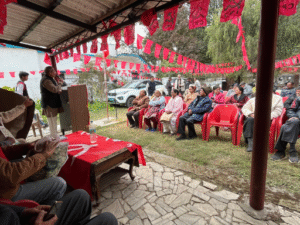Tensions between India and Pakistan have escalated sharply following a deadly terrorist attack in Pahalgam, Jammu and Kashmir, which claimed the lives of 26 people. India has launched intensified anti-terror operations across the region in response, with the National Investigation Agency (NIA) taking charge of the probe. Early findings suggest that the attackers—linked to Pakistan-based Lashkar-e-Taiba—strategically targeted civilians, using the terrain to maximize casualties. Security forces have demolished the Kupwara house of top LeT commander Farooq Ahmad, whose network is believed to have facilitated the assault. The NIA has so far recovered 40 cartridges from Baisaran meadows and is analysing eyewitness statements and video footage for further leads.
Amidst continuing cross-border shelling from Pakistan, Prime Minister Narendra Modi has granted the Indian military full operational freedom for retaliation. He is set to chair two critical high-level meetings today. The first is a session of the Cabinet Committee on Political Affairs (CCPA)—also known as the ‘super cabinet’—which will discuss the opposition’s demand for a special session of Parliament to address the Pahalgam attack. Union Minister Arjun Ram Meghwal confirmed that a formal request has been received and will be reviewed by the CCPA.
Later in the day, PM Modi will chair a second meeting of the Cabinet Committee on Security (CCS). Following the initial CCS meeting, India announced a set of stern measures against Pakistan, including the suspension of the Indus Waters Treaty (IWT) and a downgrading of diplomatic ties with Islamabad.
In retaliation, Pakistan is preparing to initiate international legal proceedings against India for suspending the IWT. According to Pakistan’s Minister of State for Law and Justice, Barrister Aqeel Malik, the government is exploring at least three legal avenues, one of which involves raising the issue at the World Bank. A special committee has been formed by Pakistan’s top legal body to support this effort.
Amid fears of a potential Indian military strike, Pakistan Prime Minister Shehbaz Sharif spoke with United Nations Secretary-General Antonio Guterres. During the call, Sharif condemned terrorism, reaffirmed Pakistan’s commitment to peace, and warned that Islamabad would defend its sovereignty if provoked. He also requested a neutral investigation into the Pahalgam attack.







